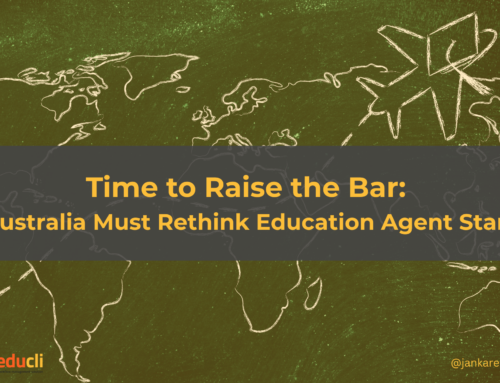Is international education in Australia entering a new phase?
After recent changes to the immigration policy, many were predicting challenging times for Australia’s international student market. After being hit with the pandemic, the 408 visa disaster, and sudden visa refusals, the reputation of Australia’s international education sector has tarnished.
Effective from 1 July 2024, Australia implemented a significant policy change: visitors and Temporary Graduate (TGV) visa holders are no longer able to apply for other visas while in Australia. This development marks a considerable shift in Australia’s migration landscape, with profound implications for international students, temporary workers, and the broader Australian economy.
There were 45,992 student visas granted in June 2024. After extensive student visa policy tightening over the past 12 months, the government has been hoping to see a sharper decline in student visa application rates and higher refusal rates to deliver the lower level of net migration forecast for 2024-25.
In June 2024, over 62% of primary onshore student applications were for the VET, despite the government’s attempt to reduce the onshore student grant rate to around 90% in the first half of 2023-24 and to around 70% in the second half of 2023-24. At 33,501, offshore student applications in June 2024 were well below the June 2023 record of 58,526, the June 2022 level of 42,700 and below the pre-COVID record of 38,041. Some 75% of applications were in the higher education sector, with a much higher approval rate in that sector (93.3%) than for the English Language (77.7%) and Vocational Education and Training (V.E.T.) (41.6%) sectors.
Onshore student applications in June 2024 saw an increase to 35,561, which surpassed the previous high of 34,888 onshore student applications in March 2024. The March 2024 record followed a large surge in onshore student applications of 21,646 in February 2024. This is, however, not surprising, considering that, following the cancellation of the sc408 COVID visa, over 100,000 individuals were left with no other choice if they wanted to stay in Australia, which has contributed to the quickly growing backlog of applications. There has also been a high increase of students applying for asylum. Regardless of the type of application, many of those applicants are on extended bridging visas awaiting their fate. Unfortunately, the Immigration Department approach by using primarily subjective criteria has led to a rapid increase in onshore student refusals and subsequent appeals to the Administrative Appeals Tribunal (AAT).
Hopefully, with the recent appointment of the new Immigration Minister, Andrew Giles, there is renewed hope that Australian immigration policies will experience a positive transformation. Minister Giles has expressed a commitment to enhancing Australia’s appeal as a top-tier educational destination and has hinted at potential policy adjustments aimed at facilitating easier access for international students.
The anticipated policy shifts under Minister Giles’ leadership are expected to usher in a new era for Australian immigration, particularly in the education sector. Here are some proposed changes that could pave the way for growth:
- Introduction of Incentives for Regional Study: Encouraging students to study in regional areas by offering incentives such as post-study work rights and scholarships could help balance the distribution of international students across the country.
- Abolish student visa caps: A potential removal on caps of the number of visas allocated to Higher Education and ELICOS students is on the horizon. Removal of caps would not only benefit educational institutions but also contribute to Australia’s economy by attracting a larger pool of international talent.
- Enhanced Support for Student Welfare: Improving support services for international students, including mental health resources and accommodation assistance, will contribute to a positive student experience and enhance Australia’s reputation as a welcoming destination.
Australia has long been recognised as a premier destination for international students, thanks to its world-class education system and vibrant multicultural society. However, recent years have seen a shift in immigration policies that have directly impacted the flow of international students, particularly in the Higher Education and ELICOS sectors. With the appointment of a new Immigration Minister, there is growing optimism that we may soon witness a positive change, leading to increased visa grants and revitalised opportunities for these educational institutions.
#StudyInAustralia #InternationalEducation #StudentVisas #ImmigrationReform #StudentVisaTrends #InternationalStudents #StudyAbroad #StudentVisa #educli




Leave A Comment